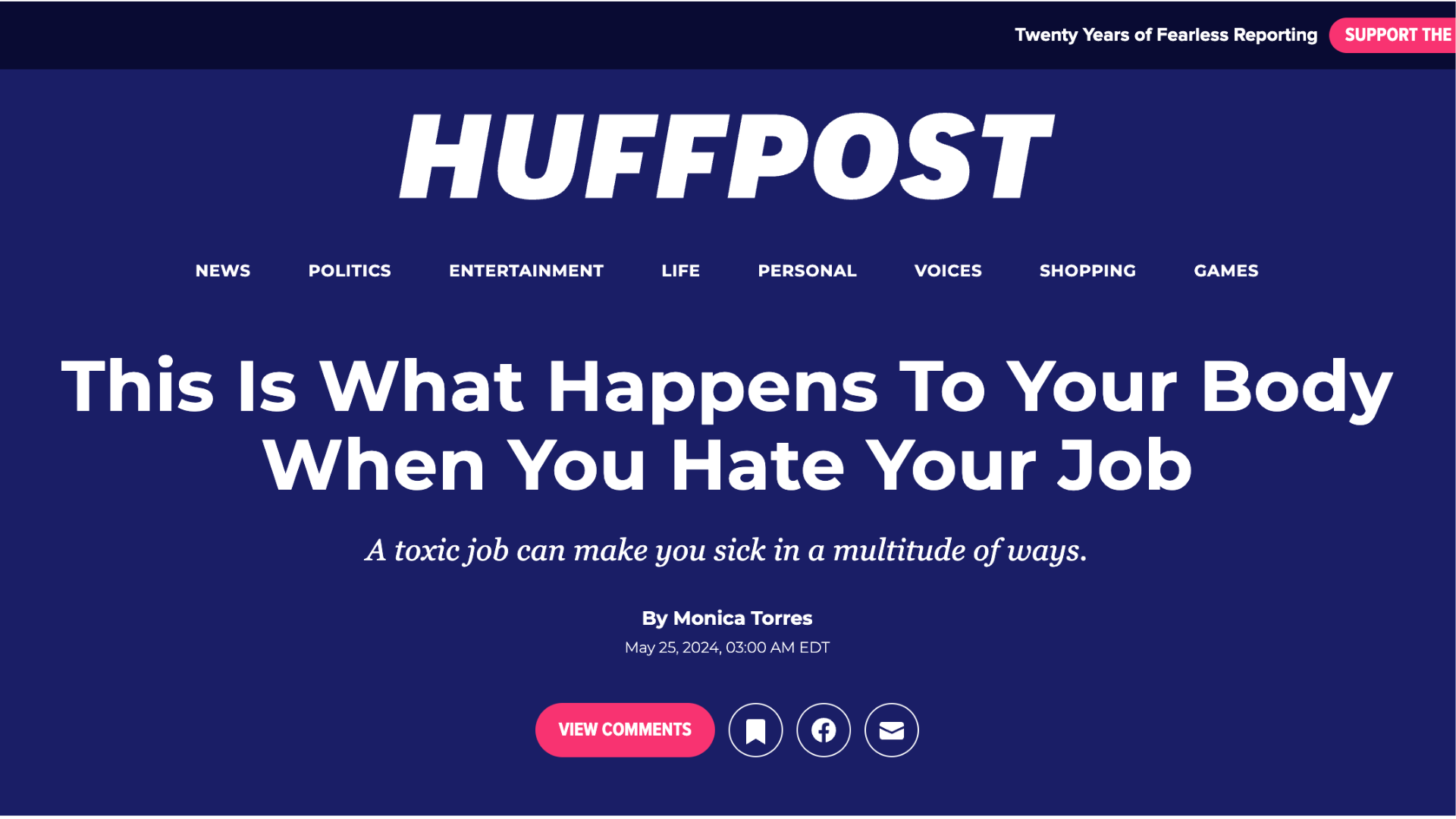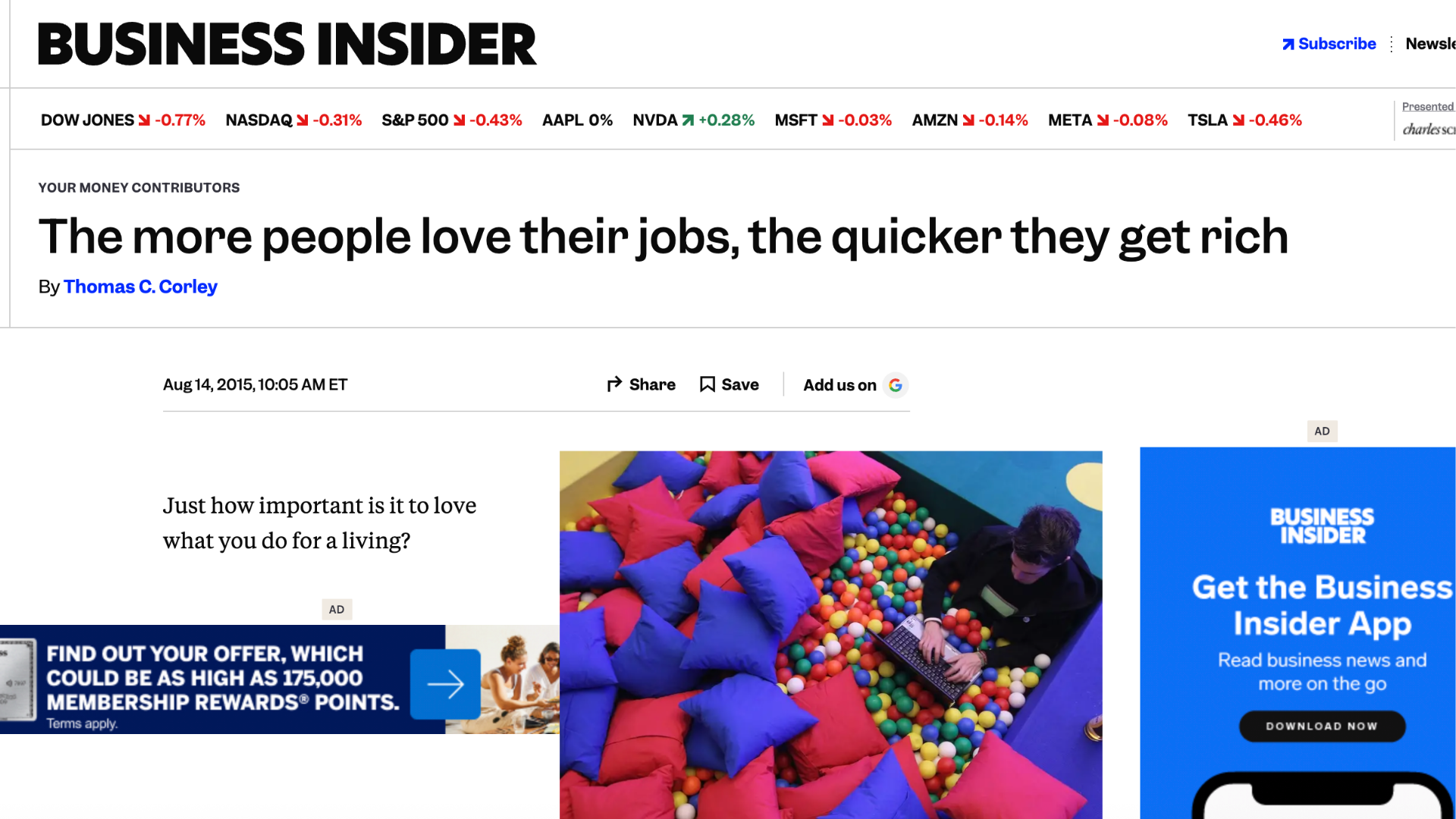
In my 7+ years in workforce development, I’ve lost count of how many times I’ve heard this line…
“I’m trying to figure out what to do next,” says every professional carrying that familiar weight of uncertainty that comes with harboring dreams that feel too risky to pursue.
But as I've learned from supporting the careers of thousands of professionals, this isn't really a story about not knowing. So, you wait. You let them talk, and you dig a little deeper.
And soon enough, they almost always admit that they know pretty specifically what they want. They’re usually just too afraid to face it, with thoughts like: Is that even possible? Could that happen for me? What about a stable salary? And health insurance?
This is the paradox I constantly see in my work: professionals know what they want, but they've buried it so deep beneath practical concerns that they've convinced themselves they're lost.
But the truth is, you’re not lost. More likely, it’s that you’re hiding.
Why We Choose the Steady Paycheck
I understand why so many people cling to traditional employment, even when it's slowly killing their spirit. If you've grown up without safety or with basic needs unmet, you want to do everything in your power to maintain financial stability. The steady paycheck represents survival, security, and the promise that you can pay your bills and take care of your family.
According to Business Insider, this attachment to security comes at a steep cost. Their analysis of wealth-building habits reveals that 96% of people struggling financially dislike what they do for a living, while 86% of wealthy individuals at least like their work. But here's what’s even more interesting: the 7% who love what they do for a living accumulated an average of $7.4 million—more than double the $3.4 million accumulated by those who merely liked their jobs—and they did it in just twelve years compared to thirty-two.
The physiological toll of staying in work that misaligns with who you are is equally dramatic. According to data from professor Jeffrey Pfeffer's research published in HuffPost, poor management and toxic work environments account for up to 8% of annual health costs and are associated with 120,000 excess deaths annually. When we hate our jobs, our bodies keep score through sleepless nights, chronic headaches, muscle tension, compromised immune systems, and digestive issues.

The Permission Problem
What emerges from the collection of all my career conversations is a consistent pattern: people aren't lacking direction, they're lacking permission. "Actually [they] know, and they're looking for permission to do it,” says my colleague Rachel Gaddis, who specializes in career coaching for professionals diagnosed with ADHD. “It's never 'I don't know'.”
To be clear, the permission we're seeking isn't external, it's internal. We need permission to believe that our dreams are valid, that pursuing fulfillment isn't selfish, and that we deserve to love what we do for a living. This internal resistance often stems from a fundamental misunderstanding about how career transitions actually happen.
According to Business Insider's research, sixty-five percent of self-made millionaires had side jobs or businesses that provided additional income streams, allowing them to pursue their dream work. Another 27% had spouses who worked to help carry the financial load during the transition. The notion of dramatic overnight career changes is largely a myth—sustainable transitions happen gradually, with careful planning and often with support systems.
The Rise of Independent Work: A New Path to Security
Here's what the traditional career advice doesn't tell you: there's actually a growing movement that proves you don't have to choose between security and pursuing your dreams. According to MBO Partners' 2024 State of Independence in America report, 72.7 million Americans now work independently, and their numbers continue to grow even during economic uncertainty.
What's remarkable about these independent workers is how they've redefined security. Rather than finding it in a single employer who could lay them off at any time, they've built it through diversification, skill development, and authentic self-expression. The report shows that 61% of independents say they're more able to be their authentic self at work, compared with only half of traditional employees. Nearly 6 in 10 independents said their work fits well with who they are as a person, compared with only 47% of traditional workers.
Even more telling is that 65% of full-time independents say they feel more secure working independently, and 84% say they are happier doing it. So, this is about much more than making more money. While only 52% say they make more money working independently, the vast majority report greater satisfaction, better health outcomes, and more optimism about the future.

The Strategic Approach to Dreams
The path to pursuing your secret dreams doesn't require you to storm into your boss's office and quit your job immediately. It calls for strategy, patience, and a fundamental shift in how you think about your options. "It's a hard thing to even admit to yourself that you want to change what you're doing,” Rachel so accurately reflects. This is especially true when you're married with kids and everyone is counting on you financially. "It's not a small thing, but your happiness isn't either, and your family wants you to be happy."
Start with an honest assessment. Stop pretending you don't know what lights you up. In fact, write down what you actually want, and say it out loud to someone you trust. The MBO Partners data shows that most independents (61%) chose their path deliberately—this wasn't something that happened to them, but something they actively pursued.
Reframe the risk. Financial stability isn’t the only risk. There's also the risk of staying where you are. Calculate the cost of remaining misaligned: your health, your relationships, your long-term earning potential, your legacy. According to the Huffington Post, chronic job dissatisfaction leads to sleep problems, headaches, muscle aches, compromised immune systems, and decreased sexual desire. So the "safe" choice isn't as safe as it appears.
Start small, then grow from there. The MBO Partners research shows that side gigs are mainstream with 37% of traditional workers now having independent side work. Of those, 42% do it to supplement income, but significantly, 27% are building a business and 30% are pursuing a passion. Start building skills, connections, and income streams related to your dream work while maintaining your current stability.
Own your full skillset and story. Rather than abandoning your diverse interests, look for the common thread. What problem do you consistently care about solving? What impact do you want to make? How can all your skills serve that bigger purpose? The independent workforce data shows that successful professionals are increasingly combining multiple income streams rather than depending on a single employer.
Create your transition team. Identify the people and resources that can help you make the change. This might include mentors, potential collaborators, family members who can provide temporary support, or communities of people making similar transitions. The research shows that most successful career pivots happen with support systems in place.

The Story You're Already Writing
Through my work with The Purpose Post, I continue to see professionals discover that their secret dreams aren't interruptions to their practical lives. Instead, they're invitations to write a different story. Because the research is clear: people who align their work with their passions don't just live happier lives; they build more wealth, enjoy better health, and contribute more meaningfully to the world around them.
Knowing this, the question now becomes: are you ready to stop pretending you don't know what to do next and start taking the first strategic step toward work that's been waiting for you all along? The data shows there are millions of people who've already made this transition successfully, building security through authenticity rather than compromising their truth for a paycheck.
The choice, as always, is yours. But now you know you're not choosing between dreams and security—you're choosing between two different models of security. One built on dependence, the other on independence. One potentially requiring you to hide who you are, the other asking you to become fully yourself.
The path is there. The community exists. The success stories are documented and growing every year.
What are you waiting for?
-
While others stay stuck in jobs that drain them, join 1000+ professionals finding purpose and building the courage to bet on themselves. Get weekly content, real life stories, and the permission you've been waiting for—delivered straight to your inbox. Your future self will thank you.



